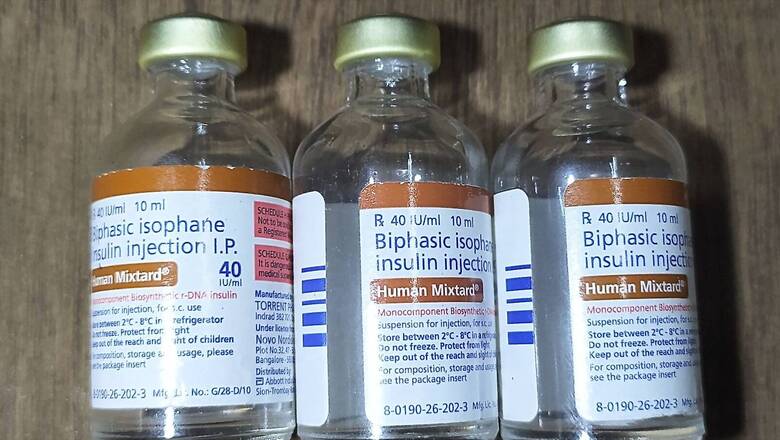
views
Rising cost of insulin has been resulting in non-compliance in patients with diabetes mellitus, finds an Indian study published in the journal Science Direct.
While rising cost of insulin poses a challenge in controlling the disease, the study said the introduction of biosimilar insulin has enabled wider access of insulin with a reduced price of about 20%-40%.
According to the study published in the peer-reviewed science journal, the rapid increase in burden of type 2 diabetes mellitus (T2DM) poses a huge medico-economic challenge, especially when the cost of care is funded by out-of-pocket expenses.
The issue is of great concern as India is referred to as the ‘Diabetes Capital of the World’ and it accounts for 17% of the total number of diabetes patients in the world.
There are around 80 million people with diabetes in India and the number is expected to increase to 135 million by 2045.
“The aim of this review is to highlight various issues associated with rising cost of insulin, prevalence of cost-related insulin underuse, insulin related cost-saving behaviours, and viable solutions for the benefit of patients with T2DM receiving insulin,” said the study titled “Rising cost of insulin: A deterrent to compliance in patients with diabetes mellitus” published on June 2.
As per the industry estimates, the price of insulin has increased by at least 50% in the last four years. Top three multinational pharma companies which control the insulin market in India are Sanofi, Eli Lilly and Novo Nordisk.
Biosimilar insulins may offer solution
The study undertaken by 15 researchers or doctors was conducted by using electronic databases (PubMed and Google Scholar) from 2000 to 2020. These databases were searched using the key terms “uncontrolled diabetes mellitus, insulin therapy, glycemic control, direct cost, indirect cost, out-of-pocket expenses, cost-related insulin underuse, cost-saving behaviors, and biosimilar insulin in developed countries and India”.
Diabetes is a chronic disease and it affects the way the human body stores and uses sugar and other nutrients for energy. The disease restricts the body’s capacity to release enough insulin, a hormone released by the pancreas, to keep sugar levels within normal range.
In the majority of the patients with type 2 diabetes on monotherapy, addition of another oral anti-diabetic agent is required.
“Despite these measures, the target glycemic goals are not achieved in the majority of the patients resulting in various complications,” authors said.
According to the study, these complications can be prevented and target glycemic goals can be achieved with early initiation of insulin therapy.
However, rising cost is a major deterrent to the life-long use of insulin. This results in non-compliance and further deterioration of glycemic control.
“Recently, biosimilar insulins have revolutionised the management of type 2 diabetes mellitus and look promising from the economic point of view,” it said.
As per the study, it is expected that biosimilar insulins are likely to further enhance the compliance of patients and should be used whenever feasible in patients with diabetes mellitus.
“However, the patient, along with the prescriber should be allowed to make shared, informed decisions regarding the insulin they wish to use,” the study concluded.
Read all the Latest India News here

















Comments
0 comment